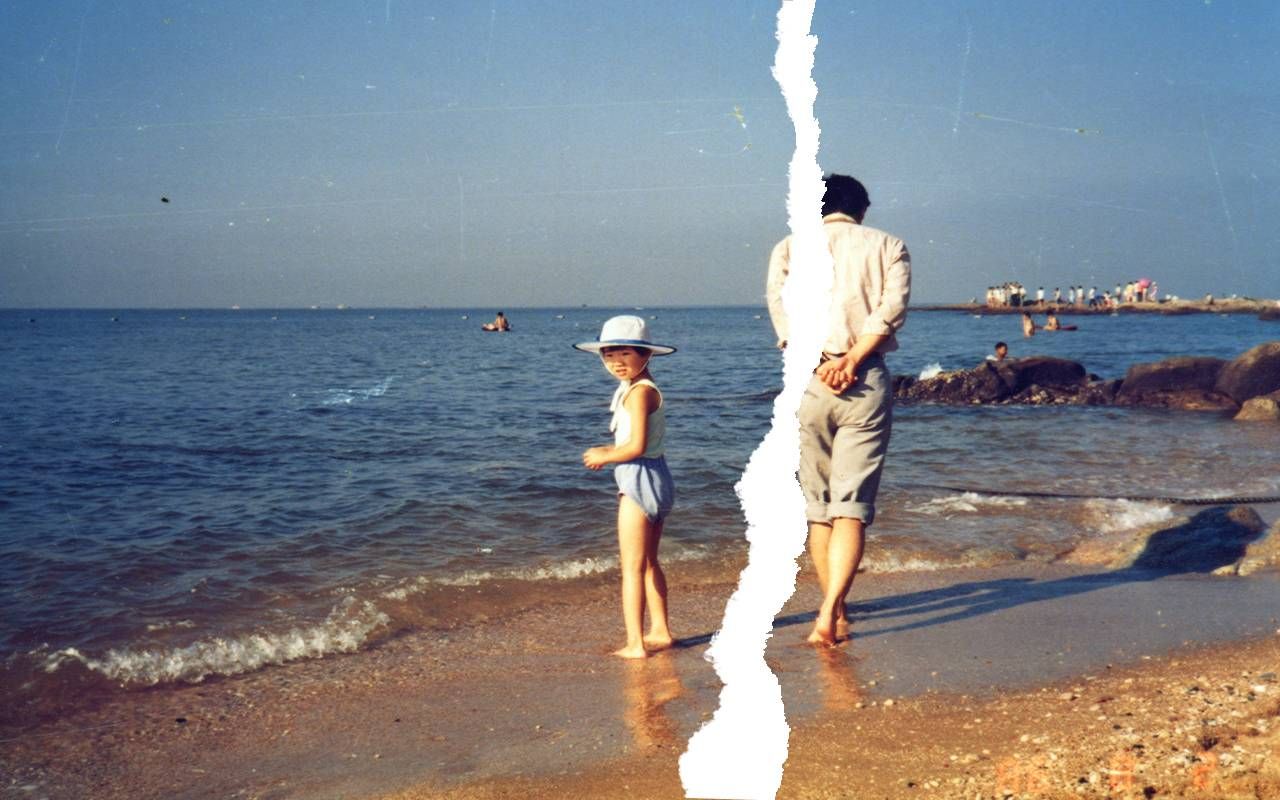Mourning a Toxic Parent
Many children of abusive or toxic parents don't get closure before their deaths. Some feel guilty for not mourning enough or at all. Feeling unresolved is common.
When a toxic or abusive parent dies, there could be emotions ranging from relief, anger, to resentment and unfulfillment. When my father died recently I hoped I had processed and moved on.
Through the decades, I occasionally confronted my father with his past emotional abusive behavior, lack of empathy and support. He was oblivious and continued to rant about what I should do with my life, where I should live and how to spend my money. My sister and I just forgave and forgot, showering him with birthday and holiday gifts, and keeping conversation with him light and non-confrontational.

"Many people think there's relief when a toxic or abusive parent is gone. But you still have the relationship even if they're dead, whether you want to or not."
As my dad sunk into dementia in his late eighties, it was pointless to bring up the past negative behavior. I pitched in with his care, mainly to support his wife, my stepmother of forty years. There were some cathartic moments when we would boss him around. It was almost a relief to be able to confront him with no fear of retribution. When he had a stroke last year and died at 92, I felt no regrets as I had closure and had done my best to help him with his health issues to the end.
Many children of abusive parents don't get that closure before their demise. Some feel guilty for not mourning enough or at all. Some may find it hard to be around people who think the deceased parent was wonderful and without reproach. Feeling unresolved is common.
Dr. Amy Caplan Demmer, a psychotherapist in Florida, notes, "Many people think there's relief when a toxic or abusive parent is gone. But you still have the relationship even if they're dead, whether you want to or not."
Dr. Alejandra Vasquez, certified grief counselor, writes in, "How to Handle an Abusive or Toxic Parent's Death" that the relief of their death can be replaced with feelings of emptiness, anger or confusion. There is no longer opportunity for reconciliation. It's important to feel validated and be aware that your feelings can transform over time.
A Lack of Closure
Many toxic parents had or have underlying diagnosed or undiagnosed mental health issue or functioning alcoholism, addiction or personality disorders like narcissism. During the mid-20th century, there was no arsenal of therapies, drugs and support groups that exists today.
Caplan Demmer notes that Boomers were raised by a generation with different family dynamics and attitudes on raising children. Also, awareness about mental health issues and addictions were different years ago and, more than is the case today, attached to a lot of shame and guilt. It was rare that one of your school friends admitted that they had an abusive or toxic parent and sought help.
The legal system has also changed. There is a lot more awareness about domestic abuse than decades ago, unfortunately after many family tragedies. I noticed a big difference when we sought help from local police in 1970 when my father threw a vacuum at my mother and threatened to kill her. The police just dismissed it and asked my father to cool off. Then in 2003, there was no hesitation from the law issuing a restraining order against my estranged husband for emotional abuse.
Attending the funeral may risk bringing up negative emotions. Should you grieve in private and avoid other family members?
Once the toxic or abusive parent dies, Vasquez suggests seeking forgiveness, spiritual outlets and/or therapy. My friend Vicky sought therapy after her mother's death. Vicky's mother was a late-diagnosed schizophrenic with violent and emotionally abusive behavior. Vicky did a lot of research on schizophrenia which helped her understand her mother's illness. Vicky notes "it erased some of the toxicity" and diminish the anger which she says has transformed over decades.
Vasquez writes that when an estranged parent dies, attending the funeral may risk bringing up negative emotions. Should you grieve in private and avoid other family members? Do you attend the funeral? It's possible that facing estranged family members may risk bring up negative emotions and memories.
Vicky was terrified to see her mother dead and didn't attend the funeral, choosing to stay home alone sobbing. She wonders now, at age seventy, if "the reason I never had children was because of my mother."
Caplan Demmer advises people to be aware of their level of resentment and anger after a toxic parent dies. She also suggests seeking therapy and "not allowing the anger to eat you alive or even drive you to excessive drinking or taking drugs." She recommends support groups and/or therapy to work through these issues before the anger causes you harm.
My journalist friend, Marie, had a physically abusive mother with untreated mental health issues. After her mother died, Marie found writing about her mother's physical and emotional abuse a cathartic experience. Marie related to Jeannette Walls' acclaimed memoir, "The Glass Castle." That book gave Marie courage to document her own painful childhood.
Allow Time to Grieve
I used my experience as fodder for a period TV pilot: "Korean war vet, unstable jazz musician and gambler subjects his family to an unconventional lifestyle." My father self-medicated with alcohol for untreated PTSD and bipolar disorder. He was aware he had "mood" issues and sought psychotherapy in the 1960's but refused drug treatment of any kind.
By the time he reached his early sixties, he dropped hard liquor and changed his diet which seemed to take the edge off. I was uneasy at my father's funeral, not about the memories, but felt anguished visualizing his body in a coffin going underground. It took months to get that painful visual out of my mind and may be related to his conflicted role in my life.
Experts cite the typical timeline of grieving process for a toxic or abusive parent can be much different from other losses.
Experts cite the typical timeline of grieving process for a toxic or abusive parent can be much different from other losses. It's important to allow sufficient time to grieve and allow the rage and other emotions to flow through. There could be mixed feelings, including guilt, in wondering if you should have treated them better if they had dementia or a serious illness. Even up to when they die, you want to get that time back and imagine it would be different.
In "The Glass Castle," Jeannette Walls speaks of making a final visit with her dying father Rex, focusing on happy memories. Walls writes about letting go of the anger as she needed to move on with her life.
It seems finding compassion for whatever their underlying issues were may help. Another tactic is the thought, "they did the best they could do given the times." Consider one upside to having dealt with a toxic or abusive parent; it can make us highly aware of unstable and volatile personalities we may encounter.
Whether your toxic parent is still alive, dying or already dead, there's an opportunity to reconcile within yourself, with them, even in absentia for your own well-being. Allow yourself to honor them in your own way or not, and find the best avenue and comfort level to cope, process and move on.

Read More

